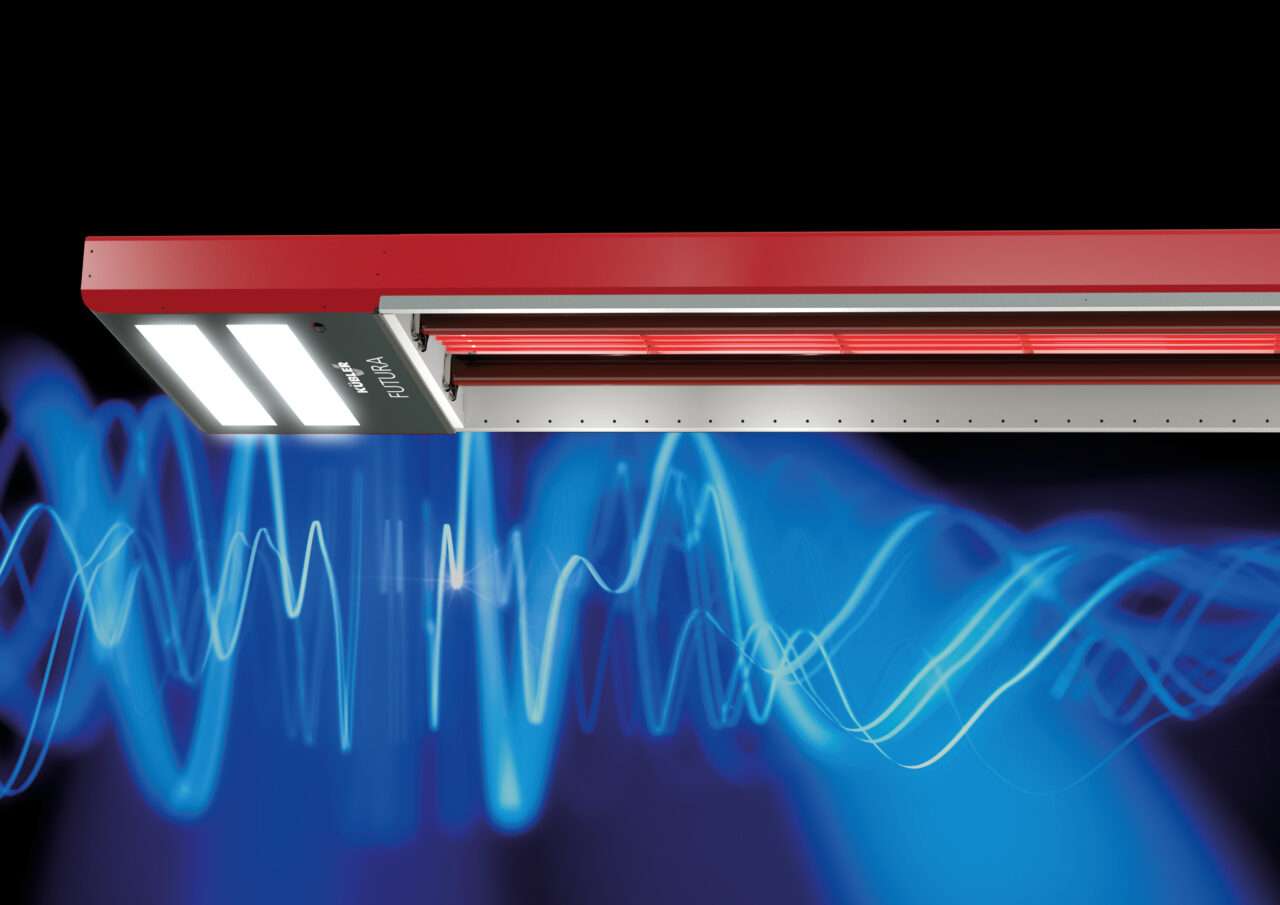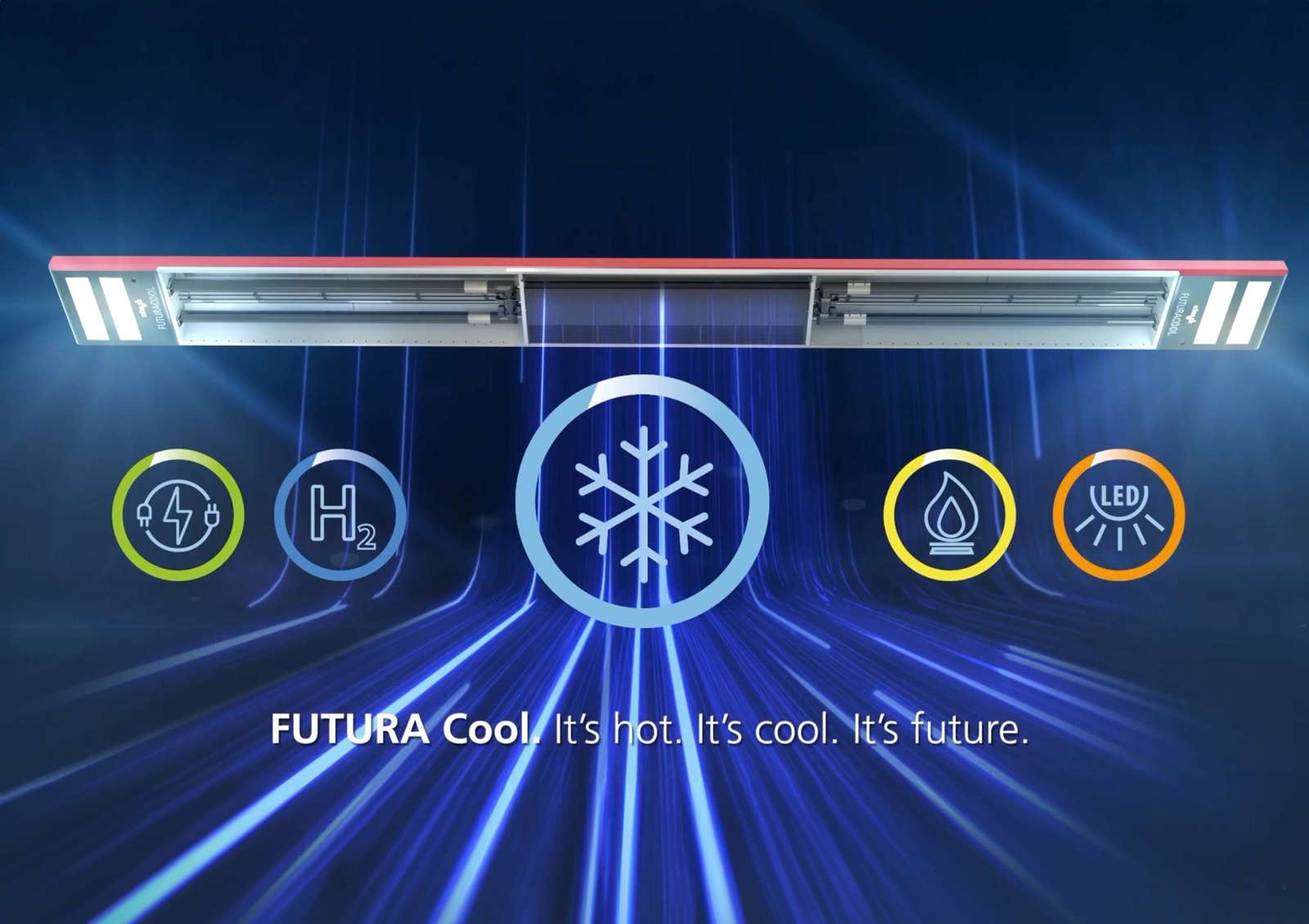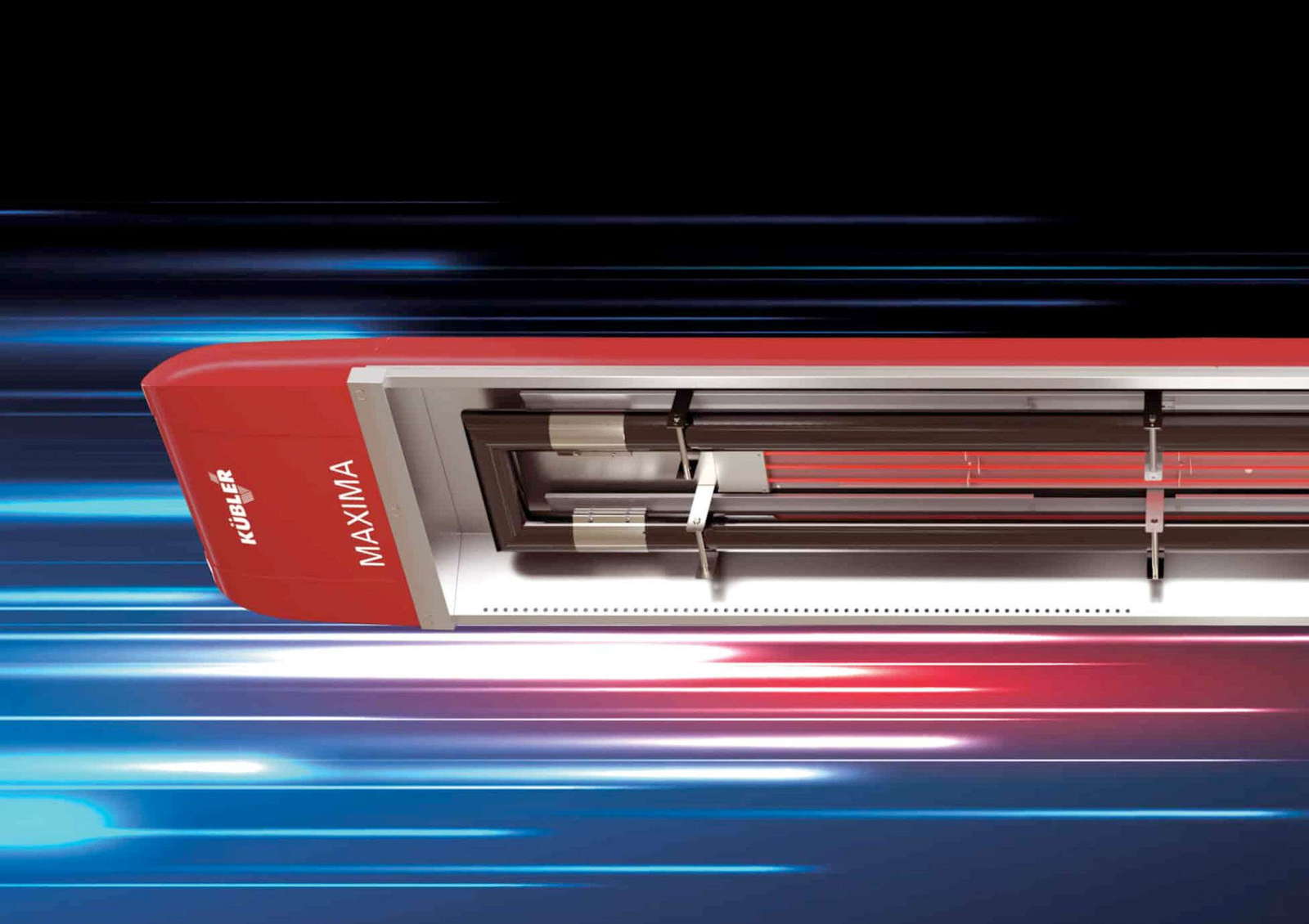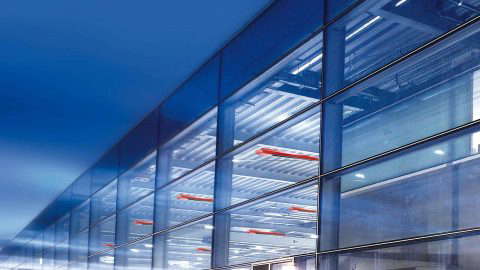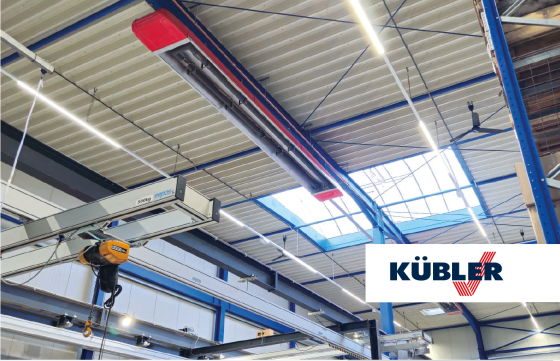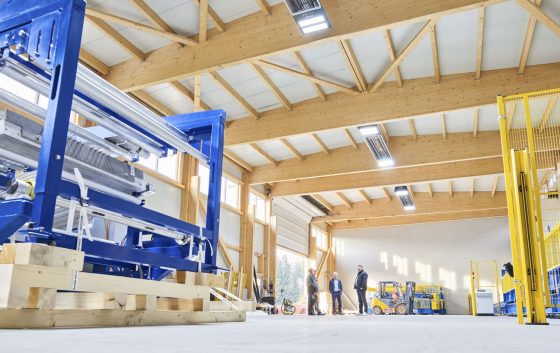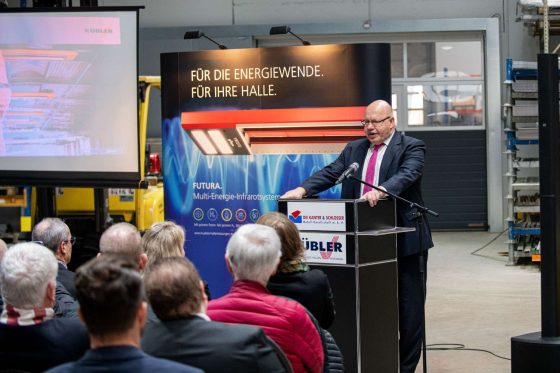Sustainable heating for material storage
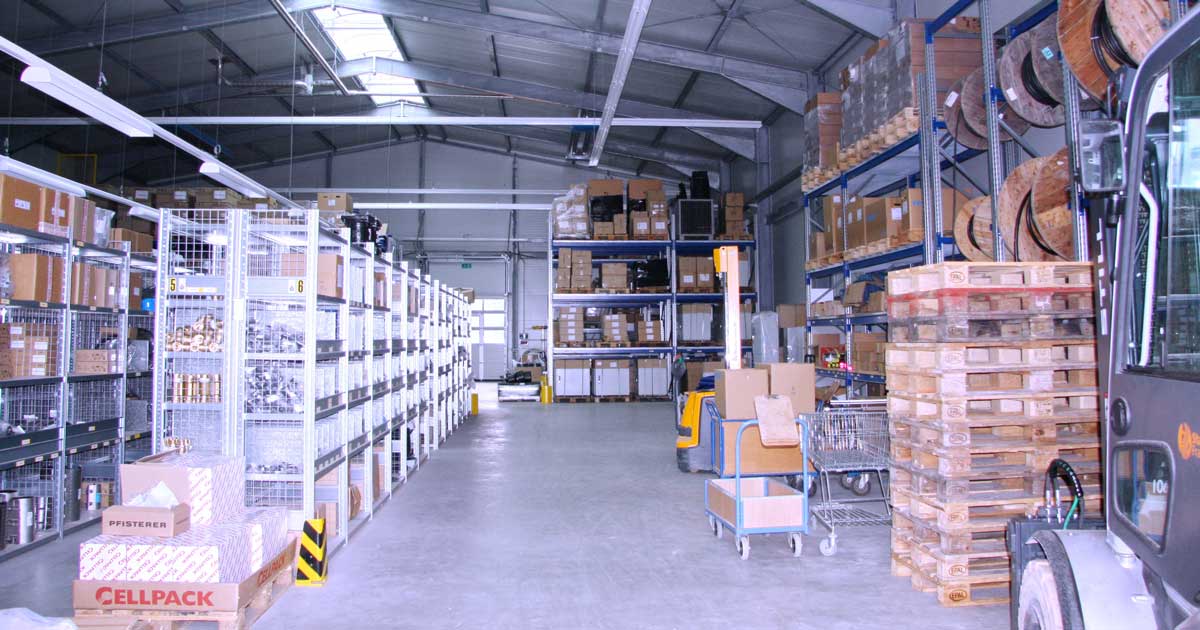
Stadtwerke Frankenthal has given itself a special profile as an energy supplier. In addition to the reliable supply of electricity, gas and water, great importance is attached to customer proximity and service. Occupational safety and environmental protection are also very important. When the decision was made in November 2012 to replace the old materials warehouse with a modern building, the criteria "healthy working environment" and "energy efficiency" played a decisive role.
The decision to heat the new hall building with an energy-saving infrared system from KÜBLER was made unanimously in consultation with architects and energy consultants. The original plan was to use conventional fan heating. By chance, they had become aware of the particularly efficient hall heating technology from KÜBLER through press releases. The hybrid system from the infrared heating specialist was nominated for the "Germany's most sustainable product" award at the German Sustainability Awards*. This literally came in handy for the planning of the new material storage hall: The headquarters of the innovative hall heating specialist is located in Ludwigshafen. And thus in direct proximity to Frankenthal.
Opting for a solution with a future
"Of course, we first obtained detailed information about infrared technology and also looked at a reference project. But it quickly became clear that this heating technology fully meets our requirements in terms of future-proofing, working climate and sustainability," says Ralf Vickus, Head of Purchasing and Project Manager at Stadtwerke. Heating systems from KÜBLER are extremely robust and designed for a service life of 15 to 25 years. They also meet all current legal requirements (e.g. EnEV or EEWärmeG) - with a clear buffer for future tightening.
High-efficiency infrared benefits the environment and people
Up to 70 % energy savings and an equally high reduction in CO2 emissions can be generated by KÜBLER infrared heating appliances. Stadtwerke Frankenthal benefits from extremely low consumption costs. However, KÜBLER systems have even more advantages over conventional fan heaters. For example, the very pleasant and uniform room climate, because there is no air and therefore no dust turbulence. The reason why KÜBLER's hall heating solutions are so efficient is due to the infrared principle: Similar to the sun, infrared does not heat the air, but bodies that absorb this spectrum. The room frame, the floor - but also machines and people. This means that no warm air can rise under the hall roof for physical reasons and fizzle out there unused.
MAXIMA minimizes energy consumption
A system consisting of standard Thermoline units and the MAXIMA line of units was installed in the new 36 x 20 m building. This high-efficiency line from KÜBLER had just reached series maturity, so that the Frankenthal team wanted to benefit from the further increased efficiency of the KÜBLER systems. With around 80 % of directly usable heat in the work and storage area, the KÜBLER development still marks the state-of-the-art in energy-efficient hall heating today.
Fully automatic for optimum operation
The decentralized heating system is connected by a collective flue gas system. For Stadtwerke Frankenthal, this is a small but highly interesting detail, which comes to light every two years during the chimney sweep's regular visit. The measuring effort for him is significantly reduced with just one roof opening.
The digital control system from KÜBLER regulates the heating operation in the new warehouse. Intelligently adapted to the respective outdoor conditions and temperature requirements, depending on weather conditions, working hours and days of the week. The system interactively analyses the environmental and physical building conditions and independently optimizes the optimal heating switch-on times.
Reliable and proven for four years
Even four years after commissioning, Stadtwerke is still completely satisfied with the decision. "We have good, even heat distribution in the hall. This is important for the employees and for the highly sensitive measuring devices that we store there," says Vickus. And: the system has been running reliably - since day one.
-
The old hall heating system consumes too much energy. And it is becoming increasingly unreliable. Good reasons to finally tackle heating modernization and replace the old system with a modern, energy-efficient one. But the expense seems high and is often shied away from. Yet today there are alternative solutions that can also be very interesting from an economic point of view.
-
With around 90 employees, eepos is one of the industry leaders in the field of ergonomic workplace equipment and has branches on five continents. The core of the eepos portfolio consists of smooth-running aluminum crane systems based on a modular principle. In the automotive and mechanical engineering industries, these have become the quasi-standard for innovative lifting solutions in the range up to two tons. With a new highly efficient infrared hall heating system from KÜBLER, eepos is marking the [...]
-
The task The well-insulated new hall with an area of around 900 m² and a ceiling height of around nine meters will house storage areas for raw materials, machine parts and end products in addition to production. Christoph Buxbaum answers the question of what requirements he has for the heating of the new hall as follows: "Three simple reasons were decisive. The new building [...]
-
With the FUTURA, KÜBLER from Ludwigshafen has developed a world first for heating industrial halls. It is an infrared heating system that can process green and fossil fuels highly efficiently - thus building a bridge to the carbon-free era. The company Die Kanter & Schlosser in Trier is the first to use this [...]
